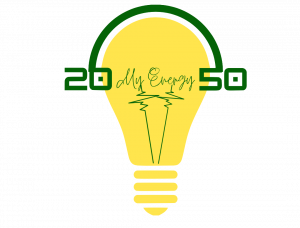Summary
Paula Kivimaa is a Research Professor of Climate and Society, at the Finnish Environment Institute. She holds a long research record focused on energy efficiency, decarbonization, and innovation. One of her current projects is focused on national defense and the low-carbon energy transition. This is our starting point to understand the changes Finland is experiencing in its shift away from Russia and how energy security is reframed.
Kivimaa had a multidisciplinary education that combined environmental science, business management, energy policy, and organizations and management. Her interest in academic research grew when she worked on a project about the effects of international air pollution policies on Finnish energy power plants. After finishing her Ph.D. program, she focused on sustainability transitions, a research field that draws from different disciplines, including innovation studies, geography, evolutionary economics, and sociology.
Kivimaa’s background in social science is different for the energy sector in Finland, where engineering plays a significant role. In the past, energy research mostly focused on engineering and economics, and social science projects did not receive funding. But the focus is now also on social sciences, and Kivimaa appreciates the opportunities it brings to understand the energy system from different angles.
The demand for renewable energy, electrification, and energy efficiency has increased, but supply shortages are now being experienced. Policymakers are facing tough decisions on how to replace the gas supply from Russia, and investments are being made for liquefied natural gas (LNG) terminals in different parts of Europe. However, the risk is that such investments may create a new type of fossil fuel lock-in. Kivimaa argues that energy is required in different ways for society to work, and it’s about foreign policy and diplomatic relations as well. Governments are creating avenues to import LNG, and diplomatic relations are essential in ensuring supply security.
Kivimaa’s approach to research is multidisciplinary. Instead of starting from a particular discipline, she uses theories, concepts, and disciplines as analytical tools to study a problem. In her current project, she explores geopolitics and security studies, which she finds fascinating but acknowledges that it takes time to understand the theoretical debates in the field.
As you’ll hear towards the end of the interview, Paula introduces the concept of landscape shocks. How multiple crisis impact and shape the roll-out of the energy transition. How regimes emerge (51:00) and shift over time. The landscape was viewed as external, but how do these big events (like pandemics) influence the energy transition?
Essentially, in our conversation, we work backward looking at the small changes that are building up and fostering and driving the energy transition. From Finland’s shifting relationship with Russia to the role that energy efficiency can play in national security.
The undertone of our conversation is how we conceptualize the energy transition. For example, energy security is moving away from stockpiles of natural resources to thinking about the impact of renewable energy production and the role this will play in the future. Therefore, demand response becomes important not only for grid management but for security.
Further informing the landscape events, are issues of energy justice and security. How global justice is tied to resource flows from the global south, and the role this plays in the energy transition and impact on energy security. Perceiving this through different scales. If the north becomes more secure with renewable technologies with resources from the global south, what happens to those countries selling their resources for our security?
You’ll find our conversation wide-ranging, but academically engaging. Paula has published widely on a range of energy topics and she’s well-versed in Finnish, British, and EU energy policy topics. I hope you enjoy our conversation as much as I did.
A final note, this interview was done for my 2022 role as an Open Society University Network, Senior Fellow at Chatham House, The Royal Institute of International Affairs. Funding was generously provided to produce the podcasts for the episodes recorded in 2022. And now it is 2023 but I still have a few more in my back pocket.
(text partially summarized using ChatGTP from the transcript)
Keywords
Finland, transition, energy efficiency, people, electricity, LNG, security, Russia, policy, developments, renewable energy
Transcript AI
Paula Kivimaa transcript with audio
pdf copy of transcript – Paula Kivimaa
Outline
Summary
Introduction to the episode.
0:00
How did you become a researcher?
3:36
How useful are terms like energy justice and a just transition?
10:03
The role of regulation in the energy sector.
15:31
The connection between national security and energy imports.
21:07
The role of gas in the heating system.
26:32
The role of politics the electricity market.
33:49
The role of the energy market.
39:07
Energy as a service rather than a product.
43:51
Key areas that should be examined in energy.
50:09
The landscape of the energy landscape.
Dr. Michael LaBelle is an associate professor at Central European University in the Department of Environmental Sciences. He produces the My Energy 2050 podcast to change how we communicate and improve the energy transition.
